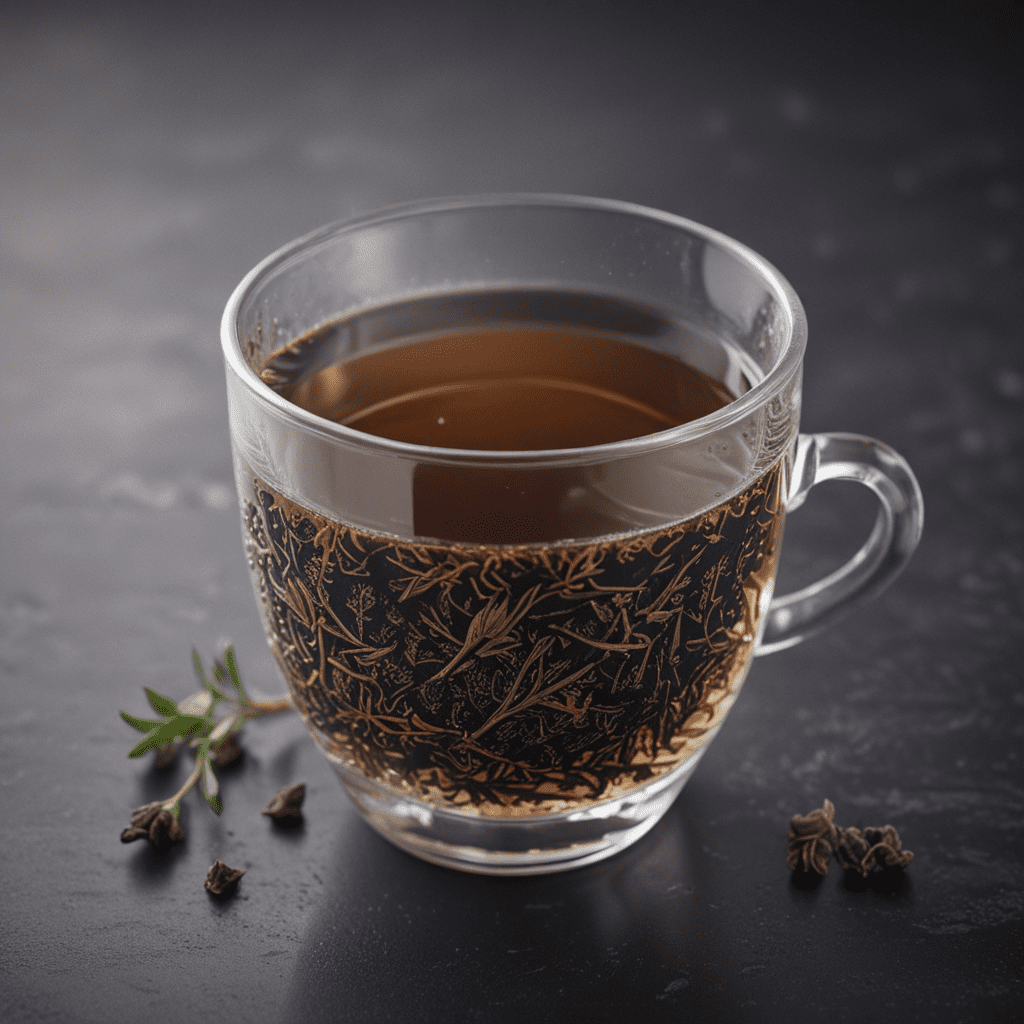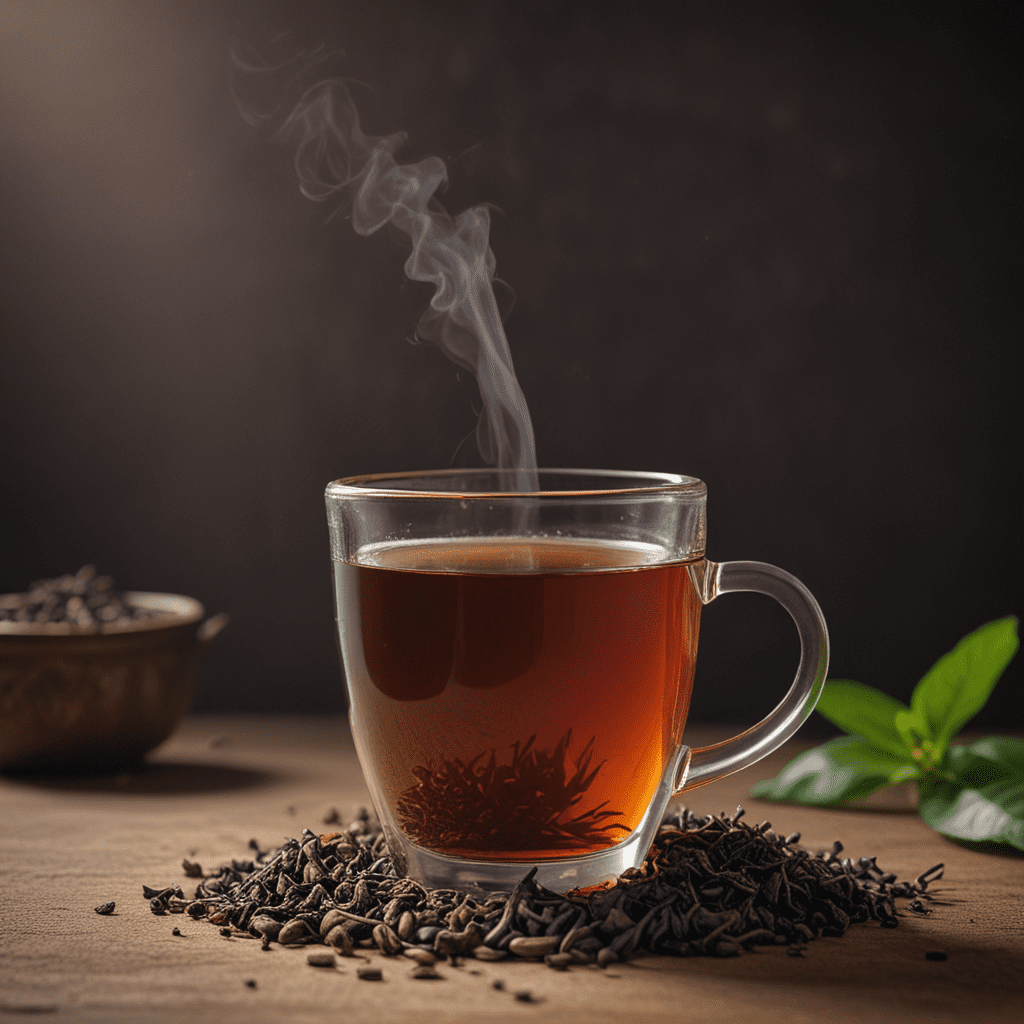Chai Tea: A Rich History and Cultural Significance
Chai tea, a beloved beverage with a captivating history, has its roots deep within the ancient cultures of India. Its origins can be traced back to the Ayurvedic tradition, an ancient Indian system of medicine, where it was initially used for its medicinal properties. Over time, chai tea evolved from a healing elixir to a cherished social drink, deeply embedded in Indian culture. Today, the allure of chai tea transcends geographical and cultural boundaries, enchanting tea enthusiasts worldwide with its distinctive blend of flavors and traditions.
Ingredients That Make Chai Tea Unique
The symphony of flavors that characterizes chai tea stems from its carefully curated blend of aromatic spices. The foundation of any chai tea recipe lies in the harmonious combination of black tea, milk, and sweetener. However, the magic unfolds with the addition of various spices. These spices, often referred to as "masala," can include a captivating array of ingredients such as cardamom, cinnamon, ginger, cloves, nutmeg, and black peppercorns. Each spice contributes its unique character, creating a delectable tapestry of flavors that sets chai tea apart from other tea varieties.
The Art of Brewing Chai Tea: A Step-by-Step Guide
Mastering the art of brewing chai tea is a journey that unveils the intricate nuances of this beloved beverage. To embark on this aromatic adventure, begin by measuring out your desired amount of black tea leaves and adding them to a saucepan. Next, add water and bring the mixture to a boil. Once the water reaches a rolling boil, reduce the heat to low and let the tea leaves steep for 5-7 minutes. While the tea is steeping, warm your milk in a separate saucepan. When the tea has finished steeping, strain the tea leaves and add the warm milk to the saucepan. Sweeten the tea to your liking and add your desired spices. Allow the chai tea to simmer for 5-7 minutes, stirring occasionally to fully infuse the flavors. Finally, strain the chai tea into your favorite mug and savor the warmth and comfort of this timeless beverage.
Variations on the Classic Chai Tea Recipe
The world of chai tea is a realm of endless possibilities, where creativity and personal preferences intertwine to give birth to an array of variations on the classic recipe. One popular variation is the addition of honey or sugar to enhance the sweetness. For those seeking a caffeine-free indulgence, decaffeinated black tea leaves can be used. Chai tea can also be enjoyed iced, transforming it into a refreshing summer treat. Experimenting with different spices is another delightful way to personalize your chai tea experience. Try adding a pinch of saffron for an exotic touch or a dash of turmeric for its vibrant color and earthy flavor. The possibilities are boundless, inviting you to explore and discover your own unique chai tea masterpiece.
Health Benefits of Chai Tea
Beyond its captivating flavor profile, chai tea boasts an array of health benefits that have been cherished for centuries. The spices used in chai tea, such as ginger, cloves, and cinnamon, possess anti-inflammatory and antioxidant properties. Chai tea is also believed to aid in digestion, boost the immune system, and reduce stress. Some studies suggest that chai tea may even have a positive impact on heart health and blood sugar levels. It's important to note that while chai tea can be a beneficial addition to a healthy lifestyle, moderation is key, and individuals with specific health concerns should consult with a healthcare professional before consuming large amounts of chai tea.
6. Chai Tea and its Role in Ayurveda
Chai tea holds a significant place within the ancient Indian system of medicine, known as Ayurveda. Ayurveda recognizes the interconnectedness of mind, body, and spirit, and considers chai tea to possess therapeutic properties that promote overall well-being. The spices used in chai tea, such as ginger, cloves, and cinnamon, are believed to balance the doshas, the three energies that govern physiological and psychological processes according to Ayurveda. Chai tea is often consumed as a morning beverage to energize the body and prepare it for the day ahead.
7. Chai Tea: A Culinary Journey Around the World
The allure of chai tea has transcended the borders of India, captivating tea enthusiasts around the globe. In many countries, chai tea has become a beloved beverage, often enjoyed in cafes, restaurants, and homes. As chai tea traveled the world, it encountered regional variations and adaptations, resulting in a diverse array of chai tea experiences. In some cultures, chai tea is prepared with the addition of cocoa powder, vanilla extract, or even a touch of chili pepper. The versatility of chai tea allows it to seamlessly blend with local culinary traditions, creating a unique and flavorful tapestry of chai tea variations.
8. The Perfect Pairing: Chai Tea and Food
Chai tea's versatility extends beyond its solo enjoyment. It pairs exceptionally well with a variety of culinary delights, enhancing the flavors of both the tea and the food. Chai tea's warm and spicy notes complement sweet treats such as pastries, cookies, and cakes. It also pairs well with savory dishes, such as grilled meats, curries, and hearty soups. The robust flavors of chai tea cut through the richness of these dishes, creating a harmonious and satisfying culinary experience.
9. Chai Tea in Modern Society
In modern society, chai tea continues to evolve and adapt to changing lifestyles and preferences. While traditional chai tea remains a beloved classic, new variations and interpretations are constantly emerging. Chai tea lattes, blended with steamed milk, have become popular in coffee shops and cafes. Chai tea is also finding its way into cocktails, mocktails, and even desserts. The adaptability of chai tea ensures its continued relevance and popularity in the ever-changing world of beverages.
10. Chai Tea as a Symbol of Tradition, Taste, and Well-being
Chai tea transcends its role as a mere beverage; it has become a symbol of tradition, taste, and well-being. Its rich history, diverse flavors, and purported health benefits have made it a cherished part of cultures worldwide. Chai tea embodies the warmth and comfort of home, the joy of social gatherings, and the pursuit of a balanced and healthy lifestyle. As the world continues to embrace the allure of chai tea, its significance as a symbol of tradition, taste, and well-being will undoubtedly endure.
FAQ
Q: What are the main ingredients in chai tea?
A: Chai tea is typically made with black tea, milk, a sweetener, and a blend of spices, such as cardamom, cinnamon, ginger, cloves, nutmeg, and black peppercorns.
Q: How do I brew chai tea?
A: To brew chai tea, start by boiling water and adding black tea leaves. Let the tea steep for 5-7 minutes, then strain the tea leaves and add warm milk and spices. Simmer for 5-7 minutes, stirring occasionally, and strain before serving.
Q: Are there any variations on the classic chai tea recipe?
A: Yes, there are many variations on the classic chai tea recipe. Some popular variations include adding honey or sugar for sweetness, using decaffeinated black tea leaves, or adding different spices, such as saffron or turmeric.
Q: What are the health benefits of chai tea?
A: Chai tea is believed to have several health benefits, including anti-inflammatory and antioxidant properties. It may also aid in digestion, boost the immune system, and reduce stress.
Q: What is the role of chai tea in Ayurveda?
A: In Ayurveda, chai tea is considered to have therapeutic properties that promote overall well-being. The spices used in chai tea are believed to balance the doshas, the three energies that govern physiological and psychological processes according to Ayurveda.



